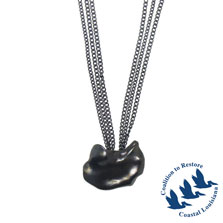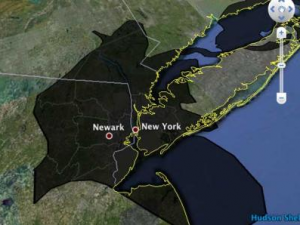June 1 would have begun the shrimp catching season in the Gulf Coast. While the season lasts only 90 days, during that period Gulf Coast fishing enterprises earn their entire year’s income, often working 18 – 20 hour days in a grueling business. But the Deepwater oil spill ended the shrimp season before it began, forcing many businesses, such as Camardelle’s Seafood, a bait shop and convenience store operating in Louisiana, to close. The proprietor put a sign on her door stating that BP closed her business. She reported to the news media that her utilities are being shut off and she can’t pay her rent. The oil spill has destroyed more in the Gulf Coast than hurricanes of past years did. Small businesses in Louisiana’s fishing industry report that BP’s compensation for their losses doesn’t even come close to making them whole.
One community isn’t accepting the losses without a fight. A group of Vietnamese-American fishermen have filed a class action suit against BP seeking compensation for their losses. The case is to be heard by U.S. District Judge Lynn Hughes who, according to the Miami Herald, has ties to the oil industry. Specifically, the Herald reports that the judge was compensated for traveling around the world to present ethics lectures to the American Association of Petroleum Geologists, a professional association that works with oil companies, including BP. The company has requested that Judge Hughes hear all of the cases filed against it, presumably because the judge has positive relations with the oil industry. This action suggests a long march to justice.
But the Vietnamese-American community has fought such battles before. Case in point: in the aftermath of Hurricane Katrina, residents of Versailles, a community on the edge of New Orleans, used the disaster as a catalyst for change. Versailles is the home of the densest community of ethnic Vietnamese outside of Viet Nam. Hurricane Katrina destroyed what they had spent years building since arriving in New Orleans as refugees. Because of their extraordinary work ethic, they rebuilt what nature had destroyed – only to face another threat in the form of a toxic landfill the government planned to build in their neighborhood. The documentary film “A Village Called Versailles” chronicles the experiences of the Vietnamese-American community in New Orleans. It airs on public broadcasting stations this month. I watched it twice and, in light of the oil spill disaster, the timing of the broadcast makes the subject particularly poignant.
The image I have chosen to accompany this blog posting is that of a piece of jewelry from the Gulf Coast collection by Mignon Faget. Mignon Faget is one of my favorite jewelry lines and I always make it a point to visit her shop when I am in New Orleans. She also has a website and catalog for online sales. She writes, “it is a heartbreaking statement to make with jewelry originally designed to celebrate the abundant gifts of our coast. The reality: we need to make people aware of this disaster and the long-term effects it will have on this region. We all need to do what we can.” Mignon Faget is donating 10% of all sales of this jewelry line to the Coalition to Restore Coastal Louisiana.

